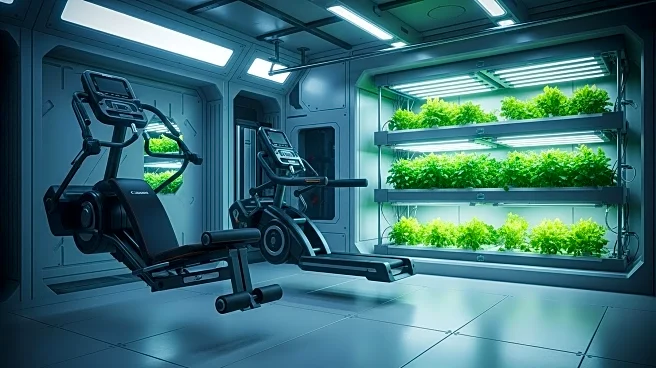What's Happening?
NASA is prioritizing research on space fitness and agriculture aboard the International Space Station. Astronauts are studying the effects of microgravity on bone and plant cells, aiming to mitigate bone loss and enhance space agriculture. NASA Flight Engineers Jonny Kim and Zena Cardman are investigating molecular mechanisms of space-induced bone loss, while JAXA's Kimiya Yui is examining plant cell division under microgravity. These studies could lead to improved methods for growing plants in space and developing treatments for bone diseases on Earth. Additionally, NASA is exploring exercise regimens that maintain astronaut health during long-duration missions.
Why It's Important?
Research on space fitness and agriculture is crucial for sustaining long-term human presence in space. Understanding microgravity's impact on bone health can lead to better countermeasures against bone loss, essential for astronaut well-being. Advancements in space agriculture are vital for future missions to the Moon and Mars, where self-sustaining food production will be necessary. These studies also have terrestrial applications, potentially benefiting medical treatments for aging-related bone conditions and enhancing agricultural practices.
What's Next?
NASA plans to continue its research on space fitness and agriculture, focusing on refining exercise protocols and plant growth techniques. Future missions will incorporate findings from current studies to optimize astronaut health and resource management. Collaboration with international space agencies and research institutions will expand the scope of these investigations, potentially leading to innovative solutions for space exploration challenges.
Beyond the Headlines
The research on space fitness and agriculture highlights the intersection of technology and biology, raising ethical considerations about human adaptation to extraterrestrial environments. It prompts discussions on the sustainability of space missions and the potential for biotechnological advancements to address global challenges, such as food security and healthcare.









